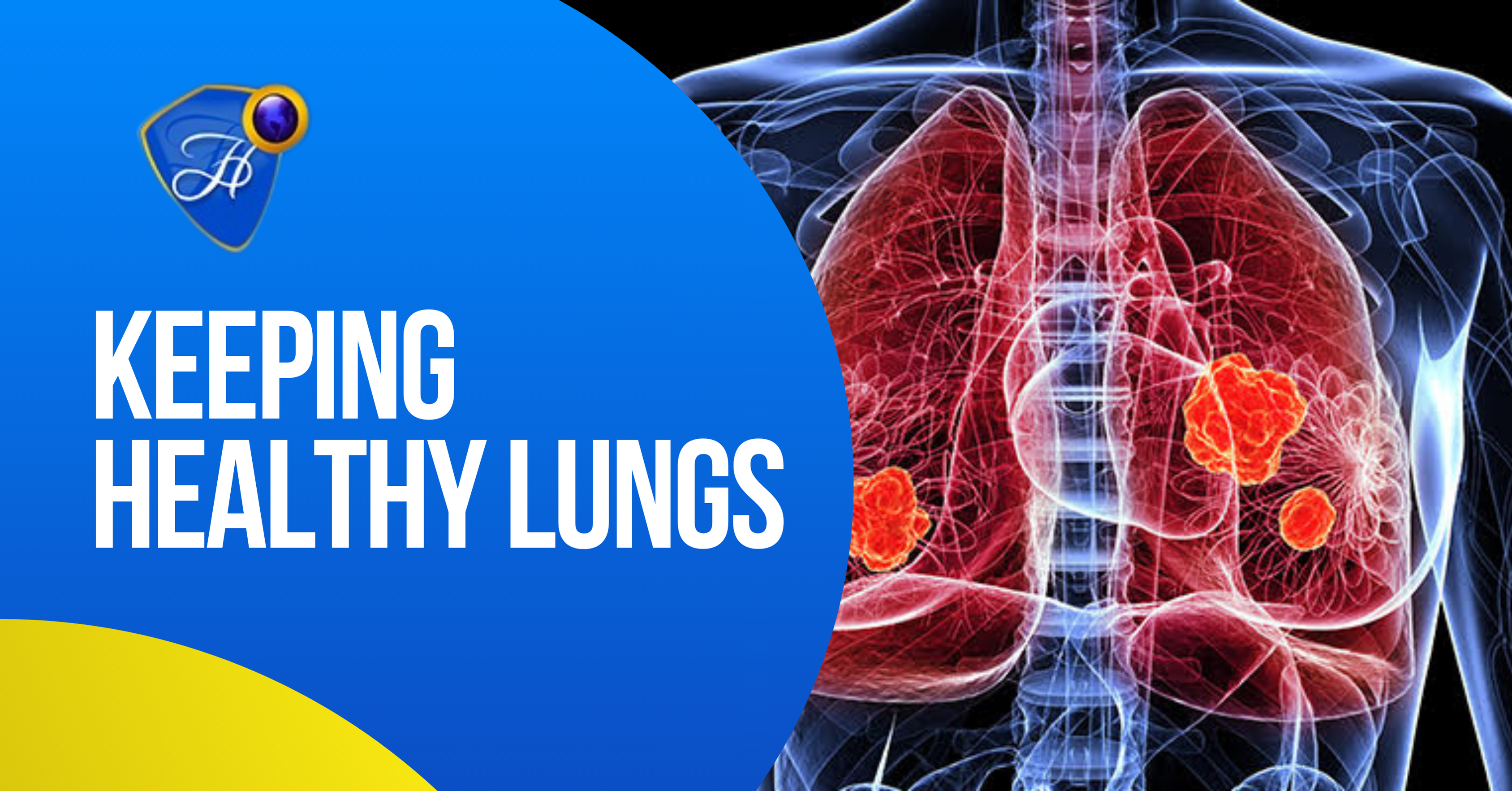
You breathe in and breathe out. It's intrinsic—you do it without thought or hesitation. Most of the time, you take no notice of your lungs, which are always working hard to fill your body with much-needed oxygen. Like every other organ in the body, your lungs require care.
Protecting your lungs, keeping them healthy, and maintaining optimal lung function and capacity should be part of your healthy lifestyle.
WAYS TO PROTECT YOUR LUNGS
● CLEAN YOUR ENVIRONMENT
The health of your lungs depends on how much clean air you breathe in. Consciously reduce or avoid exposure to toxic air, such as secondhand smoke, exhaust from motor vehicles, and other pollutants. Take safety precautions if you work in an environment that exposes you to harmful substances. Clean your home regularly and make it a dust-free, smoke-free zone. Also, open windows often to improve ventilation and use natural cleaning products whenever possible.
● MAINTAIN GOOD HABITS
Keep your hands clean by washing them regularly with soap and water to avoid infections. Eat fruits and vegetables to boost your immunity, and drink plenty of water to stay hydrated.
● DON'T SMOKE
Smoking is extremely harmful to your health and has been linked to most lung diseases, including cancer. Smokers inhale toxins that damage the lungs, leading to increased mucus secretion and making it harder for the lungs to clean themselves. Over time, this causes the airways to narrow, making breathing more difficult.
● EXERCISE MORE
Regular exercise keeps your body in shape—including your lungs. Exercise increases your heart rate, making your lungs work harder to take in more oxygen and supply it to your muscles. Consistent exercise strengthens your lungs and improves their efficiency.
● DO BREATHING EXERCISES
Most people only use a small portion of their lungs through regular shallow chest breathing. One way to support your lungs is to practice deep breathing, which involves breathing from the stomach.
Slowly inhale while deliberately expanding your belly, hold the breath, and then slowly exhale while allowing your chest to fall. Try to balance the duration of inhaling and exhaling. You can gradually improve your lung capacity by increasing the length of each breath. This exercise helps clear your lungs and allows more oxygen into your body, enhancing lung function.
● WATCH YOUR POSTURE
The lungs are made of soft tissue and can only expand as much as the surrounding space allows. Slouching compresses your lungs, so sit and stand taller to give them more room to expand. Also, practice leaning back in a chair and stretching your arms upward often.
● LAUGH MORE
Laughter benefits your lungs. It engages your abdominal muscles and helps expel stale air from the lungs, allowing more fresh air to come in.
Actively work on maintaining and improving your lung function. Like every other healthy practice, it's the small things that make a big difference.








Post Comments & Testimonies